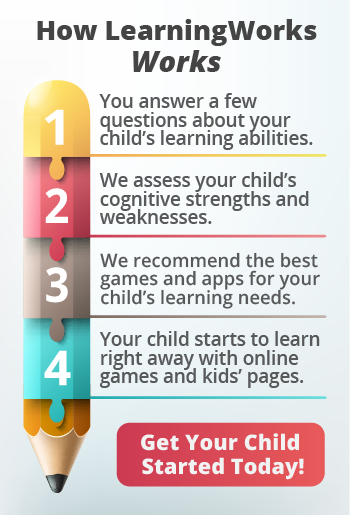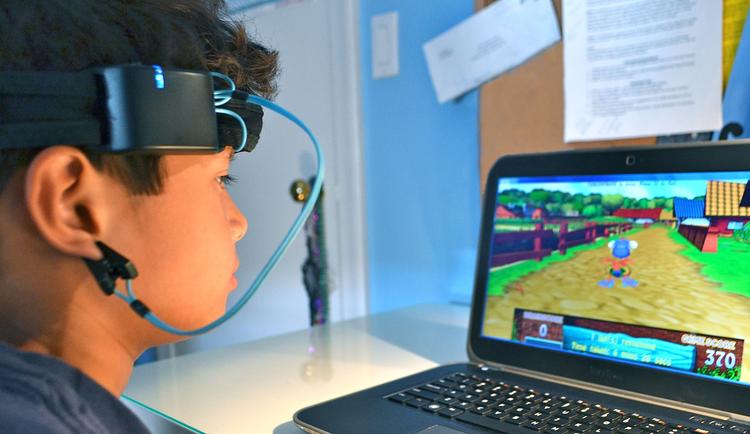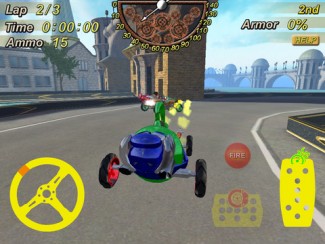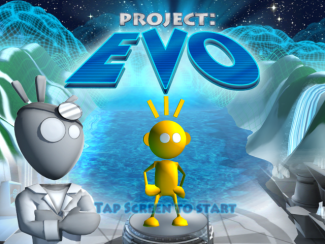 There are many emerging technologies claiming to help abate the symptoms of ADHD in kids. These new tools include games and apps that are designed to improve focus and attention, neurotechnologies that improve skills such as visual scanning, and intensive working memory training programs that improve the skills with which children with ADHD struggle.
There are many emerging technologies claiming to help abate the symptoms of ADHD in kids. These new tools include games and apps that are designed to improve focus and attention, neurotechnologies that improve skills such as visual scanning, and intensive working memory training programs that improve the skills with which children with ADHD struggle.
For the most part, the research on how effective these tools can be is limited. That being said, it is an incredibly promising area of study. For example, more than 50 peer-reviewed research articles suggest that Cogmed Working Memory training can not only improve working memory skills but also reduce the symptoms of ADHD. Research is also being conducted on a number of other promising technologies, like Project EVO, developed by Akili Labs, which is currently undergoing an FDA approval process for the treatment of ADHD.
In addition to these rigorously researched tools, there are many apps and games that are designed to address the executive functions that suffer in children with ADHD. Some of these tools target memory skills, others focus on improving processing speed, and a large number of them attempt to address varying aspects of selective and focused attention.
Other approaches, such as our own here at LearningWorks for Kids, see games and technologies as tools to be used in conjunction with metacognitive strategies and generalization activities to improve the symptoms of ADHD and other executive function disorders. While we can all agree that a neurotechnology that could significantly improve the symptoms of ADHD all on its own would be a game changer, the key as of now seem to be a multimodal approach that uses educational, behavioral, and cognitive strategies to supplement these new technologies.
[cjphs_content_placeholder id=”73528″ random=”no” ]We’ve scoured the web and gathered up what we think are some of the most promising new technologies available for improving the symptoms of ADHD. Do your own research, and determine which one might be best for your child or student.
ADHD Skills Booster: Tween Ultimate – Developed by AdapTac Games, this iOS racer is deceptively useful for building the focus of its tween users. We say deceptive because the app looks like a racing game, but uses complex algorithms to measure the focus of its players.
The Atentiv™ System – Utilizing a headband to conduct an EEG (electroencephalogram), which measure the electrical activity in the brain, Attentiv plans to launch its digital learning system later this year. The Atentiv™ System is directed towards kids ages 8-12.
BrainHQ – Developed by Posit Science, this brain training system allows individuals to choose a predetermined course or have a custom brain-training strategy developed for them. More than 100 research studies prove BrainHQ can improve memory and attention and even physically change the brain.
Project: EVO by Akili Interactive – Boston-based Akili Interactive Labs prides itself on developing neurotechnologies, that “look and feel like high-quality video games,” for assessment and treatment of ADHD. Akili recently made national news when it began seeking FDA approval for its technologies.
CogniFit – CogniFit offers personalized brain training designed to improve processing speed, cognitive flexibility, and attention. Its games are described as fun, addictive, and able to sustain the attention and effort of its players.
Cogmed – Now owned by academic giant Pearson Education, Cogmed was originally developed by Torkel Klingberg, a professor of neuroscience at the Stockholm Brain Institute in Sweden. With more than 50 peer-reviewed research studies backing its effectiveness for children with ADHD, Cogmed aims to improve working memory skills. The system is labor intensive and a lot of work for kids, but they can make real sustainable gains.
Fit Brains – A product of Rosetta Stone, Fit Brains is a cross-platform application with many tools to improve overall brain functions and attention in particular.
Lumosity – There’s little chance you haven’t heard of this well-known site that targets improvements in executive functions and overall brain power. Originally designed for adults, teens who can stick with it will find it helpful. Lumosity also recently introduced an app for kids under the age of 5, called LumiKids.
Featured image: Atentiv Incorporated






